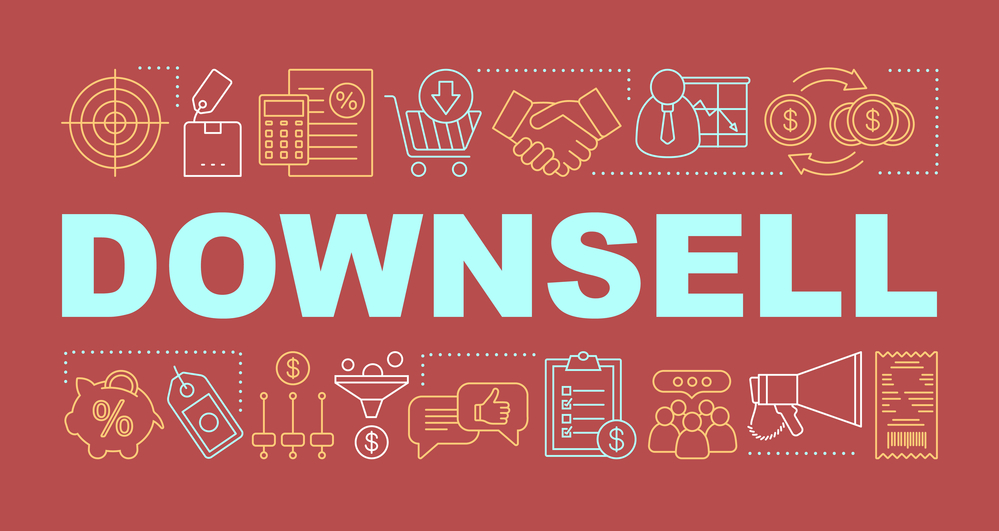
Company Valuations Part 2: When Is the Best Time to Sell a High-Risk Business and How to Get a Company’s Value Assessment
Nov 3, 2021 3 minute Read
In Part 1 of our interview with Lane Gordon, we spoke about what makes a business sellable. The metrics a business owner should look at and the qualities a buyer looks for. In this part, we’ll cover when the best time to sell is as well as how to get an accurate high-risk business valuation.
There are many reasons an owner might want to sell their business, and there is never really a bad reason. Instead, it relies more on how you position your business to buyers and how honest you are about it.
When Is The Best Time to Sell a Business?
Even when your business is running smoothly, revenue is high, your client base is rising, you have a solid income approach, and the sky is still the limit, you may want to ask yourself, “when should I think about selling my business?” Not because you need to sell it at this moment, we don’t want to scare you into selling right now. Instead, it’s to prepare you so you don’t miss your best chance to sell when the time comes.
Why a Business Owner Would Sell Their Business
A lot of the time, we like to think businesses are sold because they’re tanking or the owner wants to get rid of it before it becomes too bad of an investment. While that does happen, businesses are more often than not sold because the owner has simply come to the conclusion that it’s a good time to sell. So, what does “a good time to sell” mean?
A great reason to sell is because you, as the current owner, aren’t able to grow the company any longer. You’ve reached your limit, met your goals, and now its time to pass the company onto someone else who has a different vision and can grow it in a new direction.
Other very valid reasons to sell a high-risk business is due to changes in personal life. Maybe your marital status or location has changed, you’ve gotten older, or you’ve taken on more personal obligations. These are completely okay reasons to sell a business and shouldn’t be looked down upon.
One of the best reasons to sell is because you simply want to do something else. Your hearts not in it anymore, you want to explore passions outside of this one business, or you’ve achieved your goals and now you’re done. Simple as that. This is a great reason to sell because you’re not motivated by the fear of becoming obsolete or failing in the competitive space. That would still be a valid reason to sell, but it would make obtaining a high valuation quite challenging.
Selling on the upswing is a great time to take action. Even if you’re unsure of your business’ position in the industry in the next 3, 4, or 5 years, it’s still growing, profiting, and a great asset to new buyers.
Ways a High-Risk Business Owner Should Look Forward
When deciding the best time to sell, a business owner should discover what they think is the long-term trend. That trend differs for each business, so there’s no right or wrong answer.
Maybe you have a SaaS business and you see the long-term trend as furthering adoption rates. Or maybe, more specifically, you see your role—your long-term position—in the business as being able to grow the customer base.
Ask yourself if what you currently have will maintain the value of a business for consumers moving forward. Will your product soon become hyper competitive? Will it be replaced by updated technology sooner rather than later?
Is There a General Multiple for High-Risk Businesses?
In finance, a multiple is the comparison of two metrics to determine the health of a company. Multiples are often used by investors as a performance measure when creating a valuation for high-risk businesses and low-risk businesses.
The business risk for industries like CBD, supplements, and crypto which have high volatility, finding a multiple might be tricky because these industries are so new. The financial risk premium is high, and there’s no proven benchmark to use across the board. Market risk and industry risk are high simply because these companies are in their infancy. Especially considering how easily regulation can obliterate one of these company’s industries simply because there’s very little or no regulation for them at all. On the other hand, new regulation could help these industries thrive. So we’ve asked Lane what multiple there might be for these types of businesses.
The Answer: It’s All Over the Board
Lane says it’s likely more dependent on soul searching than anything else. Before you think that’s a cop-out kind of excuse, he gave us an example:
If you have a CBD business that’s doing really well at the moment, then ask yourself if it will be doing this well or better in one, two, or three years. If the answer is no, then it’s probably a good time to sell. That’s especially true if you already have an interested buyer given your current business appraisal.
It’s not a Burning Man type of soul searching. It’s a forecast of the expectations you have for your own business. If the dominoes are lining up, then there might not be much sense in preventing the cascade. Business is going well, you don’t see a secure growth rate in the near future, a buyer is interested—perfect time to sell for a high-risk business.
High-Risk Business Valuations Depend on the Industry
CBD and crypto are up in the air a little bit in a regulatory stance, so for these businesses you need to soul search. But for other types of high-risk businesses, like subscription sellers and SaaS products, selling and valuations are a little different.
Tech platforms that use subscription-based services get high valuations are show up in the news so often for a very simple reason: it’s difficult for customers to leave. If you have a QuickBooks-like service, once customers start entering data it gets incredibly difficult to migrate out of your platform. It’s painful, even. Even if there’s a better platform with better technology and features out there, customers are likely to stay simply because this is where all of their data lives.
For supplement sellers, CBD sellers, and those similar, they are viewed different. This goes back into what we were saying in Part 1. A higher valuation is more likely when these types of companies have a larger customer base. So when trying to decide the best time to sell the business, the size of the customer base will play a huge factor. The best answer is likely to be when you’re still growing.
What Are the Implications for Businesses with Small Pools and High Tickets and Vice Versa?
We were wondering if one type of business is more valuable than the other from a high-risk company valuation perspective. Here’s what we found.
Large Client Pool, Small Ticket Items Are Generally More Valuable
These types of businesses are typically more valuable to a buyer. As stated in Part 1, it’s about risk factors and spread. If there are more people to carry the revenue stream, then it’s more attractive than just a few people holding all the weight.
Large ticket, small pool businesses can be much more profitable to the current owner, but from a buyer’s perspective, the level of additional risk management isn’t worth it.
How Large Ticket, Small Pool Businesses Can Obtain a Higher Value
The best way for these high-risk businesses to increase their value is to try and add on as many clients as possible.
A more achievable approach to doing this is to create an exit plan. You can reach out to competitors in your vertical and ask to create a collective. That way, when it’s time to sell, buyer’s won’t be so afraid to approach your asset because you’ll be able to include the pool from those competitors involved. It’s best to get a neutral 3rd-party player to contact your competitors so you can avoid causing any distress and you get to remain anonymous.
For large ticket, small pool high-risk businesses, long-term contracts with expensive breakup fees are attractive to buyers. Let’s say you can’t acquire many more new customers and reaching out to competitors just isn’t possible. If your customers are tied down to your service with multi-year contracts and high fees for if they decide to leave, then buyer’s view that positively. It means clients are dedicated to you and trust in your service, so they aren’t looking for a way out. It also means when a new owner comes onto the scene, they won’t be able to flock out.
Where Can a High-Risk Business Get a Good Value Assessment
There’s no single way to measure how sellable a business is that can apply to all businesses. The best way is to hire someone to perform the value assessment. Hiring that key person, a valuation analyst or even a CPA, will not only give you the present value (and fair market value) of your small business, but also insight into how you can improve that value given company-specific risk. Once you get a firm grasp on your own metrics, you can better understand what will increase your value and get to the point of salability, if you ever want it.
Before doing so, it’s also important to ask if you have a real business and understand what a real business looks like.
How long have you been around? It might be best to try and get a valuation or sell after you’ve been active for at least a year.
How much weight does one person carry in the company? If it’s a one-person show and all sales and support is handled manually, then it’s not a functional business. But if it’s a one-person show and everything is automated with a steady cash flow, then it is. The same applies for companies that have full management teams.
What is your risk profile? Look at the diversification across your business and how much of your revenue relies on a small portion of your customer base. Then, create a a risk assessment based on that.
These are some questions to keep in mind because these are what buyers are going to look at.




